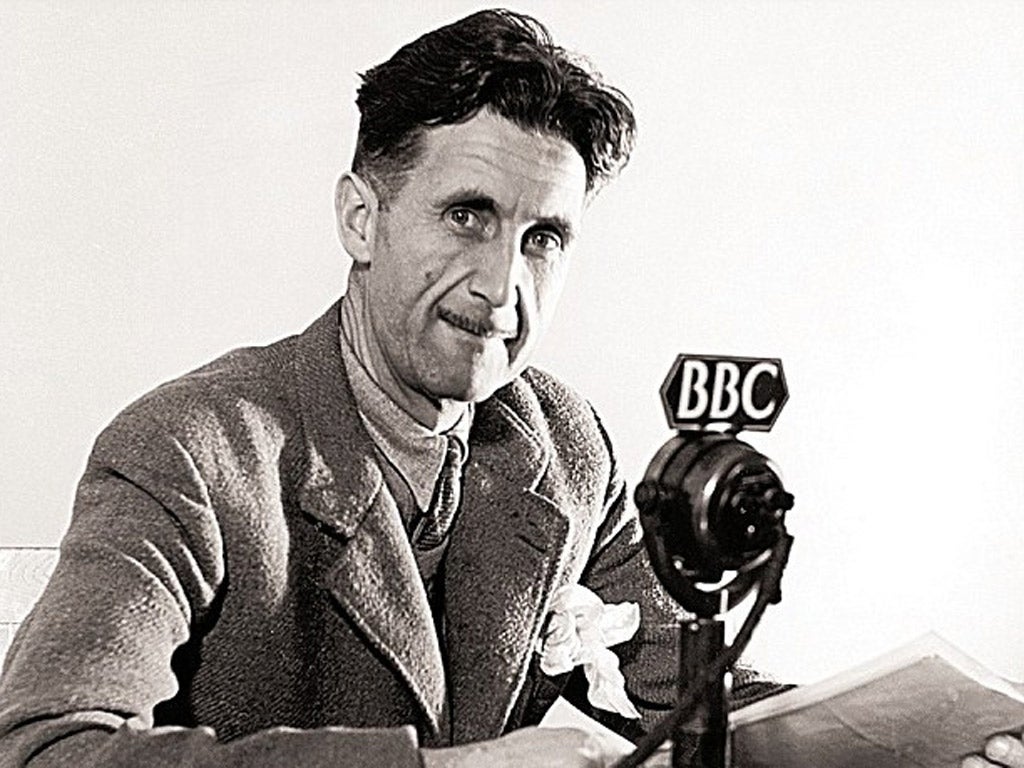The Week in Radio: Homage to Orwell has plenty of animal magic

Your support helps us to tell the story
From reproductive rights to climate change to Big Tech, The Independent is on the ground when the story is developing. Whether it's investigating the financials of Elon Musk's pro-Trump PAC or producing our latest documentary, 'The A Word', which shines a light on the American women fighting for reproductive rights, we know how important it is to parse out the facts from the messaging.
At such a critical moment in US history, we need reporters on the ground. Your donation allows us to keep sending journalists to speak to both sides of the story.
The Independent is trusted by Americans across the entire political spectrum. And unlike many other quality news outlets, we choose not to lock Americans out of our reporting and analysis with paywalls. We believe quality journalism should be available to everyone, paid for by those who can afford it.
Your support makes all the difference.What did George Orwell ever do for us? I mean besides giving us TV's Big Brother, in which fame-hungry nobodies lie around on designer furniture picking their toenails, and Room 101, in which fame-hungry nearly-nobodies prattle on about stuff that gets on their wick. We're probably only a commissioning meeting away from a reality series in which the cast of TOWIE are dressed up as four-legged creatures and sent to work on a farm, under the über-strict gaze of Sir Alan Sugar's Napoleon.
Given that Orwell's current ubiquity resides more in lowest-common-denominator TV entertainment than in political and literary thought, Radio 4 is probably right, with its season The Real George Orwell, to remind us that the writer born Eric Blair bashed out quite a few good books. One imagines a veil is simply being drawn over the writer's description of the BBC, for whom he worked as a producer in the 1940s, as "a cross between a girls' school and a lunatic asylum". (The mind boggles as to what he'd say about it now).
Meanwhile, for the dilettante readers and Eng Lit GCSE student, the season offers a crammer course on the source both on our low-rent television shows and much of our language, while drawing our attention to some of his more prescient predictions.
An amuse-bouche arrived on Monday with Start the Week, in which Joan Bakewell and columnist and speechwriter Philip Collins were among those mulling over Orwell's conviction, outlined in his 1946 essay "Politics and the English Language", that sloppy political language signifies a sloppiness of thought that deceives both the listener and the speaker.
None of the contributors were particularly fond of the phrases "squeezed middle," "fiscal cliffs" and "big society" and most felt today's speechwriters could do worse than refer to Orwell's list of rules for good writing, which can basically be summed up as: "For God's sake, cut the crap."
When it came to Orwell's great works, Animal Farm, nicely narrated by Tamsin Greig, was a good place to start. I first read it when I was 11 and, like so many other children, took it not as a political fable but a kiddie story about animals that could talk but weren't always nice to each other. A prequel to Babe, if you will.
Hearing it on the radio, with the comedy baa-ing and ooh-arrrr-ing, I began to regress slightly, hoping not for the chilling coda of pigs marching around on their hind legs but for some heart-swelling sheepdog trials in which a sweet little piglet goes home with a trophy. Alas, it was not be. Dodgy animal impersonations aside, the older you are, the more terrifying Orwell's finale becomes.
There were some suspect animal noises in The Real George Orwell – Burma, the first of four creaky biographical dramas on Orwell, adapted by Mike Walker, in which the stammering Eric, who has just been turned down by the girl of his dreams, moves to Burma to take a job with the police. There he witnesses first-hand the arrogance, avarice and cruelty of colonialism, though on one occasion is driven to violence himself when a rampaging elephant causes havoc in the local town. Eric is eventually packed off to Qatar and on the way meets a nameless stranger who drops references to Karl Marx and advises him to return to Britain and turn his attention to the underclass and "all those who make your life so easy".
This encounter may have genuinely taken place, but here the sombre-voiced spectre of literary inspiration stretched the credibility. Even so, I look forward to a mysterious stranger outlining the plot for my new best-selling novel next week on the 2.55 to Exeter.
Join our commenting forum
Join thought-provoking conversations, follow other Independent readers and see their replies
Comments